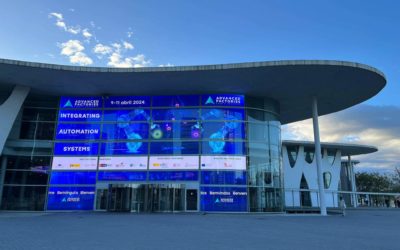Meat companies are increasingly aware of the importance of the digital transformation of their factories to optimize the use of resources, improve quality and food safety, and ensure traceability and support continuous improvement.
With a turnover of 31,727 million euros in 2021, the meat industry occupies first place in the entire Spanish food and beverage sector, and fourth position within the country’s industrial network as a whole.
Despite their leadership, in a context defined by inflation, changes in demand and growing concern for product quality, meat companies are struggling more and more to maximize the profitability of their businesses.
Next, we highlight why Mapex’s MES system can become a great ally for these industrial companies to obtain greater visibility and transparency of their production processes, make better decisions and increase their level of productivity.
Challenges and solutions in the meat industry
Total process control and visibility
Companies in the meat sector have many information silos in their factory floors: ERP, PLM, SCADA, Quality (LIMS), Maintenance, weighing systems, labeling systems, paper documents, Excels, etc. This results in a lack of a global vision of their manufacturing processes, and of reliable information in real time of everything that happens in the manufacturing plant.
This situation generates unnecessary costs and increases operational inefficiency. This dispersion of information also does not allow them to access a unified report with the most relevant key performance indicators: OEE, labor performance (kg/h/operator), productions and wastage, mass balance, etc.
With Mapex, companies monitor the entire manufacturing cycle in real time. Our MES system connects to the equipment and automatically captures the data and KPIs required by the company. With this information, highly visual reports are generated bringing together all these indicators, which can be accessed at any time by plant managers and operators.
By integrating systems and data in real time, companies can have total control over what is happening in their production plants. In turn, having this information available allows them to detect failures and make decisions in an agile way, as well as to plan actions for continuous improvement.
In addition, automatic data capture is key to eliminating manual errors and duplication, and to increasing operational efficiency in the organization.
Reducing costs and driving continuous improvement
Currently, the meat industry is having problems in maintaining profit margins. The increase in the price of animal feed, raw materials, energy and other resources, and the appearance of new competitors have led to a greater need to optimize and reduce costs.
To help them achieve their objective, Mapex offers meat processing companies a solution that:
- Calculates in real time the process shrinkage.
- Connects to online scales to know exactly the give-away of each order.
- Allows to calculate a mass balance adjusted by area or process.
Thanks to Mapex, companies are more agile in analyzing product losses, have greater control over give-away, can track productivity in real time, and can implement continuous improvement strategies in their production processes to reduce costs.
Food quality and safety
The digital transformation of meat companies is having an impact on increasing quality and food safety. In this respect, companies that have implemented the MapexQM module are able to manage all their quality plans from a single platform and in real time.
This allows organizations to ensure compliance with HACCP and other regulations related to hygiene and cleanliness of facilities and machinery; pass health inspections and avoid sanctions; and optimize the management of audits.
Traceability in the meat industry
Correctly managing the traceability of meat products is also fundamental for guaranteeing quality and food safety and generating consumer confidence. However, some companies in the sector still find it difficult to keep track of their products and identify them at any point in the value chain.
By digitizing and modernizing traceability management with the help of Mapex, companies can completely eliminate paper on the shop floor and integrate the different labeling systems they work with into a single solution. The MES software creates the labels and sends them automatically to the printer, eliminating human error and time-consuming administrative work.
The implementation of MapexTrace also leads to much more efficient stock and consumption management: reduction of inventory deviations, optimization of purchase planning, etc.
In-plant procurement management
For companies that manufacture meat products, supply management is a real challenge. If it is not automated, it is the source of both long waits at the line (due to the inability of operators to anticipate the raw materials and semi-finished products they will need) and of delays in transferring semi-finished and finished products to the warehouse or to the corresponding line.
In meat companies that have implemented Mapex, the software can automatically make the request for the materials required on the line to the WMS, according to the order book and the progress of the WO.
On the other hand, the MES system downloads the planning of orders and informs the AGV to which line or warehouse the semi-finished or finished products should be sent.
Thanks to the Mapex platform, companies increase their productivity and efficiency, avoid unnecessary interruptions and do not depend on manual actions to move material from one point to another in the factory.
For more information on the benefits of the Mapex solution for meat companies, take a look at the success stories of Sigma and Embutidos Monells. You can also fill in the contact form to request a demonstration.



